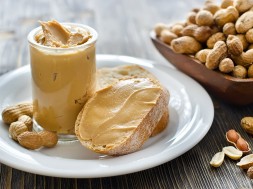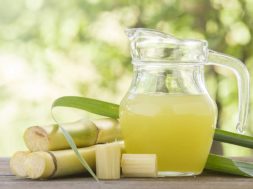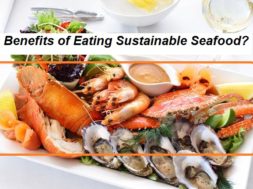What am I hearing most often these days from patients at my wellness center and coaching clients across the country? Food confusion!
Real information about what’s nutritious and healthful gets lost in all the advertisements, false claims, and myths swirling in the media. Food fads come and go as fast as the fashions on Heidi Klum’s TV show. One day a food is touted as the next great cure for whatever ails. But before you know it, “It’s out” like last year’s shoes.
You need to know the facts to stay healthy and cut through the hype. Read on for how to spot four common good-nutrition fakers.
Health Food Impostor: Organic and Health Food Store Foods
These words imply the safest, purest, and most carefully prepared foods, right? Well, not exactly. Organic foods, which are those grown without harmful chemicals and pesticides, are often superior. But a valid case can be made for the value of non-organic perishable produce. The fact is, organic foods are less readily available, tend to be pricier, and stay fresher for a shorter time. Also, remember that “organic” does not equal sugar-free, low-fat, or nutritious–just that its contents were grown without chemicals. In other words, “organic” is just one of several factors to consider in making good food choices.
Similarly, many individuals I know are satisfied with the simple fact that their food was purchased from a health food store. But health food stores today carry a wide range of products that can even mystify nutritional experts. Unfortunately, location does not mean that the item is always purer or nutritionally sound. Remember, products marketed as supplements rather than foods fall under different–sometimes less stringent–labeling regulations under US law.
The Good-Health Real Deal
Read labels carefully, no matter where you buy. Look for low sugar grams, high fiber, and an ingredient list made up of things you can identify and trust.
Health Food Impostor: Grain or Fruit Muffins and Bagels
These breakfast favorites have been a tradition for a long, long time. Sorry to say, but eating them could mean starting your day with a nutritionally deficient, overly processed dessert costing up to 500 calories–and that’s not counting whatever you put on top. Even bran muffins fall into the “health-food impostor” category because, like other breakfast breads, they often contain lots of sugar and highly refined, nutrient-stripped flour. In addition, portions have increased through the years. Today’s baked goods are supersized compared to their ancestors.
The Good-Health Real Deal
Consider jump-starting your day with a slice of 100% whole grain toast topped with almond butter or an egg. This choice is much less calorie-heavy than a muffin and more nutritious because of its protein, an important component of a healthful breakfast. Your waistline and blood sugar will thank you for the substitution.
Health Food Impostor: Granola Bars
Granola bars sound natural and tasty, and they’re a grab-and-go convenience when you need a snack ASAP. But in terms of nutrition, these treats are similar to candy bars, loaded with a variety of added sweeteners including high fructose corn syrup. Throw in dried fruit, chocolate, and other additional flavor ingredients, and the granola bar is really just a dessert in disguise.
The Good-Health Real Deal
Try packing a small amount of nuts instead. Preparing in advance for a snack will save you the blood sugar spike that happens when you grab those heavily sugared packaged mixtures. Miss tasting a combination of flavors? Make your own sensibly-portioned snack mix of nuts and unsweetened coconut.
Health Food Impostor: Vitamin Water
We know it’s important to stay hydrated, especially in the steamy heat of summer or when exercising. Not only does water promote weight loss and keep you feeling full, but it can alleviate and even prevent irritability, headaches, fatigue, and poor concentration. Water is also essential for your skin and just about all systems in your body.
But if you’re thinking of getting that vital liquid along with an extra handful of vitamins, think again. Many vitamin-enhanced drinks are also loaded with–surprise–as much sugar as a soda. Who wants to be left with a sugar crash and feeling hungry later?
The Good-Health Real Deal
Look for low-sugar flavored waters. Better yet, opt for regular water. If you want flavor, add it yourself without adding sugar. Just let sliced ingredients marinate in water in the refrigerator up to a few days. I love homemade “spa water” with berries, oranges, cucumber, or mint. Mmm.
Now you know some of the clues to look for, so roll up your sleeves. Take a few moments to assess your own kitchen, and note what you find. Develop a habit of thoughtful label reading that helps you spot the health-food fakers before they make it into your shopping cart. Your improved health and wellbeing, concentration, and energy are worth the effort.





